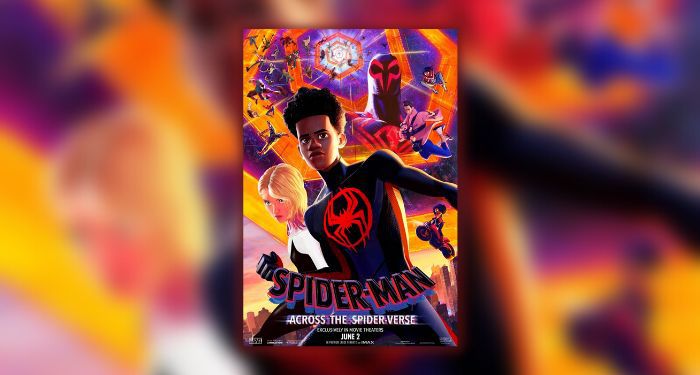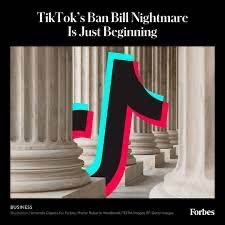Spoiler Warning: This article contains spoilers for Spider-Man: Across the Spider-Verse and speculation about the possible ending of The Flash, based on the comic Flashpoint.
Spider-Man: Across the Spider-Verse was, like its 2018 predecessor, a masterpiece. A breathtaking visual feast, it is a love letter to comics, animation, New York City, Spider-Man, superheroes in general, and everyone who loves them. I could see it a hundred times and never get sick of it.
But one of the things that struck me about the film was the way that it subverts and outright defies one of my very least favorite tropes in comics.
Across the Spider-Verse introduces Miles (and us) to the Spider-Society, an interdimensional organization of Spider-People dedicated to preserving the sanctity of the multiverse and run by Miguel O’Hara, AKA Spider-Man 2099. During Miles Morales’s first trip to an alternate universe, he meets the Spider-Man of Earth-50101, Pavitr Prabhakar, and saves the life of Pavitr’s girlfriend’s father, a police captain.
However, when Miles arrives at Spider-Society headquarters, Miguel tells him that saving the captain had catastrophic consequences, because the captain’s death was supposed to be a “canon event.” Canon events, Miguel explains, are things that happen to all Spiders and define them as characters: being bitten by radioactive spiders, the motivating death of a close loved one like Peter’s Uncle Ben or Miles’s Uncle Aaron, etc. The death of Pavitr’s girlfriend’s father was supposed to echo the iconic death of the original Captain Stacy, the original Gwen Stacy’s father, in the seminal Amazing Spider-Man #90. Miguel explains that all Spider-People are meant to lose a police captain close to them — and because Miles stopped Pavitr’s police captain from dying, Pavitr’s universe may disintegrate.
The Stack Newsletter
Sign up to The Stack to receive Book Riot Comic’s best posts, picked for you.
Thank you for signing up! Keep an eye on your inbox.
By signing up you agree to our terms of use
Miles realizes to his horror that his own father, Jeff, has just been promoted to captain — and that the movie’s villain, the Spot, is on his way back to Miles’s home universe to kill his loved ones. But when Miles tries to go home, all of the assembled members of the Spider-Society do their best to stop him. Even Peter B. Parker, Miles’s mentor from the first film, tries to make him understand their point of view — though no one wants Miles to lose his father, if Jeff doesn’t die, Miles’s entire universe could be destroyed.
But Miles refuses to stand back and let his father die because that’s what’s “supposed” to happen. That’s the whole point of being Spider-Man, he argues. Finding another way. Saving everyone.
Watching Miles argue against fate and the rules of the multiverse, I couldn’t help thinking of another superhero movie releasing this June: The Flash. I won’t be seeing The Flash, because I’m appalled that it even continues to exist in the face of the many, many allegations against Ezra Miller. But I probably wouldn’t have seen it anyway, because The Flash is a riff on the 2011 comic Flashpoint, and Flashpoint is my nemesis.
In Flashpoint, Barry Allen decides to use his powers to go back in time and save his mother, Nora, from being murdered by Professor Zoom. Instead, he breaks the timestream, creating a much worse alternate reality, and can only repair things by undoing his original change and allowing Nora to die. (He doesn’t quite manage to put things back the way they were — Flashpoint is what created the New 52, my other nemesis.)
DC is inexplicably enamored with Flashpoint, which is not a particularly well-loved story among the fans. They adapted it into an animated movie, they riffed on it multiple times in the CW show, and now they’ve made it into a feature film. And even though I won’t be seeing that film, I’m fairly confident that it will end with Nora Allen having to die for the sake of the universe.
(Which, side note: Nora’s murder wasn’t introduced as an element of Barry’s backstory until 2009, two years before Flashpoint and 53 years after Barry was first introduced. This isn’t Uncle Ben. This isn’t the murder of the Waynes, or the destruction of Krypton. It’s completely gratuitous.)
Across the Spider-Verse ends on a cliffhanger, so we won’t know until March of 2024 what Miles Morales’s father’s ultimate fate is. But given the kind of movie Spider-Verse is, and given how very clear it’s made that Miguel is wrong about Miles in general, I suspect Jeff is going to be just fine.
Why does that matter? Well, I’m not big on comic book stories about fatalism. After all, what’s the point of having super speed, or the proportionate strength of a spider, or whatever, if you can’t ever stop a bad thing from happening?
(And yes, I know that Uncle Ben’s death is a key component of the Spider-mythos — but the crucial element there is choice. Uncle Ben didn’t die because The Universe Needed Him To. Uncle Ben died because Peter chose not to use his great power responsibly. That’s the opposite of fatalism.)
But one of the things I’ve noticed about Your Loved One Must Die To Present The Timeline as a trope (YLOMDTPTT for, uh, short) is that said loved one almost never seems to be a white man. It’s usually a woman, so that a man can mourn her — a mother like Nora or a girlfriend like Gwen. Sometimes it’s a man of color, so that a white character can mourn him — the comic book miniseries Stargirl and the Lost Children just concluded with this trope, killing off the Scarlet Avenger’s Chinese teenage sidekick Wing, to the dismay of (white) Stargirl. (This is not a huge shock; this seems to be a favorite trope of Stargirl writer Geoff Johns, who also wrote Flashpoint.) Marginalized characters must stay in their lane as canon fodder to forward the narratives of the real heroes, this trope seems to say, or chaos will ensue!
There are so few white characters, particularly white men, in the Spider-Verse, uh, verse, that it would be hard to play this trope straight to begin with. But Across the Spider-Verse rejects it entirely. (There’s a lot to be said, although probably not by a white lady like me, about how the movie rejects the assumption of BIPOC suffering in general, from the guidance counselor’s insistence that Miles’s family must be struggling, to how the acceptance versus rejection of tragedy plays out generationally with Miguel and Jessica Drew versus Miles. I want to read a thousand essays about this movie, and also see it a thousand more times.)
And look, there’s merit in stories about accepting and processing grief. And a certain measure of tragedy has always been a vital component of Spider-Man’s DNA. But I think it’s important to recognize which kinds of characters get to grieve, and which kinds are used as props to allow that grief to play out.
By rejecting YLOMDTPTT, Across the Spider-Verse also rejects that dichotomy. No life is worth sacrificing for a whole universe, it says, and nothing is set in stone. Your choices matter. Spider-Man can save everyone, because everyone deserves to be saved.
I don’t know about you, but I think that’s a pretty darn good message for a superhero movie.

































